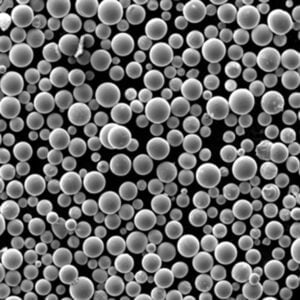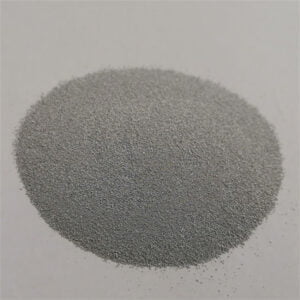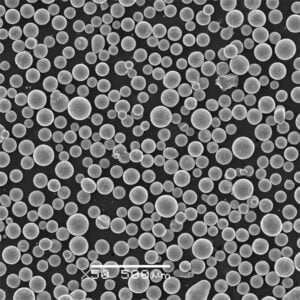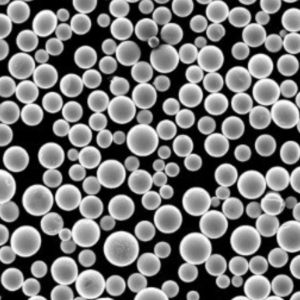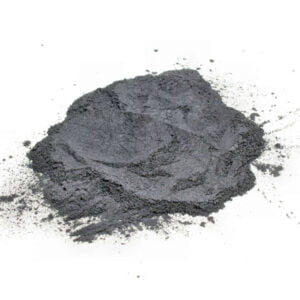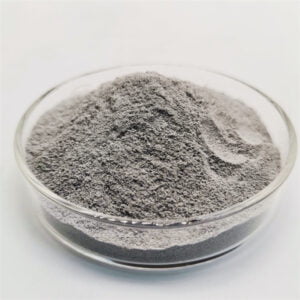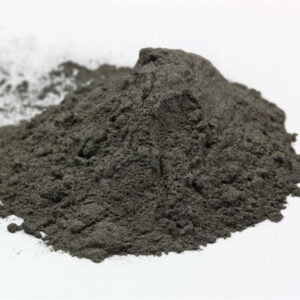Titanium Boride Powder
Table of Contents
titanium boride powder is an advanced ceramic material valued for its extremely hard and wear-resistant properties. This boride powder has become an important raw material across several industrial sectors seeking superior performance under demanding conditions.
Overview of Titanium Boride Powder
Titanium boride is a highly refractory ceramic material with the empirical chemical formula TiB2. Here is a brief overview of its properties and characteristics:
| Property | Characteristics |
|---|---|
| Chemical composition | 66% Titanium, 34% Boron by weight |
| Appearance | Grey or black powder |
| Crystal structure | Hexagonal lattice structure |
| Density | 4.5 g/cc |
| Hardness | Around 30 GPa Vickers |
| High temperature stability | Melting point 3273°F (1800°C) |
| Oxidation resistance | Resistant up to 1100°C in air |
| Thermal conductivity | 60-105 W/mK |
| Electrical conductivity | Conductive like a metal |
| Coefficient of friction | 0.3 Dynamic Against Steel |
These intrinsic properties make titanium boride suitable for specialized applications requiring hardness, wear resistance, thermal stability, and other extreme performance characteristics unmatched by metals or alternative ceramics.
The extreme hardness of TiB2, rivaling diamond and cubic boron nitride, is particularly useful for abrasive applications where high erosion resistance is needed. The combination of hardness, chemical stability and high melting point also lends the material to uses in aggressive environments.
Meanwhile, the metallic electrical conductivity allows titanium boride to dissipate electrostatic charges in processes prone to sparking. The low density relative to metals like tungsten carbide further widen its potential applications.
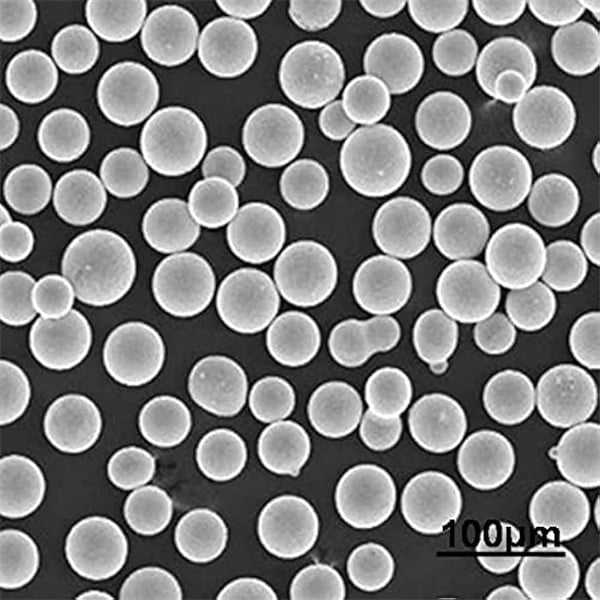
Production Methods of Titanium Boride Powder
Commercial production of titanium boride powder relies on advanced processes conducted at very high temperatures capable of facilitating reaction between titanium and boron compounds.
Here are the major manufacturing routes:
| Method | Description | Characteristics |
|---|---|---|
| Self-propagating high-temperature synthesis (SHS) | Exothermic reactions between powders like titanium oxide, boron oxide or boric acid ignited to sustain TiB2 formation | – Powders with high purity – Range of particle sizes – Agglomerated products requiring milling |
| Arc melting process | Electric arc used to melt and combine titanium and boron feedstocks | – Lower material purity -Larger grain sizes – May have hexagonal crystal defects |
| Hot pressing | TiB2 powder consolidated under heat and pressure | – Near full density products – Controlled microstructure – Higher cost |
The self-propagating high-temperature synthesis (SHS) method is a popular powder production route owing to its technical simplicity, product purity and cost-effectiveness. However, the resulting materials have wide particle size distribution and contain agglomerates.
Additional mechanical milling and classification steps are often used to control the particle size distribution of SHS-derived titanium boride powder for optimal packing density and consistency in end-use applications.
Meanwhile, hot pressing provides fully dense titanium boride products like rods, plates or complex shapes. But the process has higher costs and is impractical for producing bulk powder.
Applications of Titanium Boride Ceramic
The extreme hardness, wear properties and thermal capability of titanium boride make it highly suited to the following applications:
| Application | Uses | Benefits |
|---|---|---|
| Wear parts | – Cutting tools – Extrusion dies – Drawing dies – Granulator blades | – Hardness close to diamond for abrasion resistance – Retains strength at high temperatures – Resists corrosion and oxidation |
| Metalworking | – Cutting tools – Drawing dies – Extrusion dies – Machine components | – Extreme rigidity and hot hardness – Low thermal expansion – Withstands metal welding/forming temps |
| Electronics | – Cathode heaters – Cathode holders – Vacuum furnace elements – Wafer fabrication components | – High temperature strength – Thermal shock resistance – Electrical conductivity |
| Nuclear | – Fusion reactor armor – Fission reactor control rods | – Maintains strength in neutron irradiation – Extreme thermal stability |
These demanding applications leverage the exceptional hardness, wear performance and high-temperature capability of titanium boride ceramics.
The refractory nature of TiB2 enables it to withstand extreme environments with molten metals, abrasive flows and corrosive process conditions. Its hardness surpasses common abrasion-resistant materials like tungsten carbide for longer service life under erosive conditions.
When fabricated into finished components like dies and cutting inserts, the material withstands high stresses at high temperatures during extrusion, drawing and machining of metals. Titanium boride tools can operate at metalworking temperatures exceeding 1000°C where other materials would rapidly lose strength.
For electronics applications, titanium boride offers high rigidity and resistance to thermal shocks during repeated heating and cooling cycles. Its electrical conductivity also prevents static charge buildup.
Titanium boride remains dimensionally and chemically stable even when subjected to intense neutron radiation inside nuclear reactors. These capabilities make the boride ceramics suitable for both fission and fusion reactor designs.
Grades and Specifications
Titanium boride powder suitable for technical applications is produced according to exacting chemistry, purity and particle size specifications.
Here are common grades and parameters:
| Parameter | Grade A | Grade B | Grade C |
|---|---|---|---|
| Titanium boride content | > 94% | > 92% | > 90% |
| Titanium diboride | > 98% | > 95% | > 93% |
| Total impurities | < 3% | < 5% | < 7% |
| Particle size | 600 mesh (25 microns) | 400 mesh (38 microns) | 325 mesh (44 microns) |
| Apparent density | 1.2-1.6 g/cc | 1.4-1.8 g/cc | 1.5-2.0 g/cc |
| True density | > 4.3 g/cc | > 4.2 g/cc | > 4.1 g/cc |
The grade designations reflect product purity and powder fineness suited to various applications. Grade A represents the highest quality TiB2 powder with lowest impurity levels and fine particle size distribution. Grade C offers cost advantages but has slightly more impurities and coarser particles.
Key quality checks on commercial titanium boride powder involve:
- Chemical analysis – To quantify TiB2, titanium diboride and other elemental impurities using X-ray diffraction and inductively coupled plasma spectroscopy.
- Particle size analysis – To determine size distribution profile through laser diffraction measurements.
- Apparent density – Indicator of powder flow capability based on tap density method. Higher density aids handling and uniform die filling.
- Crystal structure – Using SEM and XRD to check phase composition and lattice structure matched to reference TiB2.
Suppliers and Pricing
Titanium boride powder is sold directly by leading specialty chemical and advanced ceramic manufacturers. Prices depend on purity grade, particle size distribution, order volumes and level of customization.
| Supplier | Grades | Prices |
|---|---|---|
| Stanford Materials | Grade A, B, C | $340 – $1000/kg |
| Edgetech Industries | Custom grades | Contact for quote |
| Atlantic Equipment Engineers | Technical, reagent etc. | $250 – $650/kg |
| Treibacher | Industrial power | Contact for quote |
| Japan New Metals | High purity grades | $800 – $4000/kg |
Pricing is highest for high purity titanium boride grades suitable for demanding applications like electronics and nuclear. Lower purity grades with higher impurities and particle sizes carry lower cost.
Many suppliers also provide custom particle sizing, surface treatment and bespoke quality documentation services tailored to individual customer requirements, which further influence pricing. Large volume purchases generally receive discounted rates.
Comparison Between Titanium Boride, Boron Carbide and Silicon Carbide
Titanium boride features exceptional hardness second only to diamond and cubic boron nitride amongst abrasion resistant materials. But how does TiB2 compare against more common boride and carbide ceramics like boron carbide (B4C) and silicon carbide (SiC)?
| Property | Titanium Boride | Boron Carbide | Silicon Carbide |
|---|---|---|---|
| Hardness | 30 GPa | 28 GPa | 24 GPa |
| Density | 4.5 g/cc | 2.5 g/cc | 3.2 g/cc |
| Compressive strength | 2200 MPa | 3900 MPa | 3000 MPa |
| Flexural strength | 350 MPa | 400 MPa | 550 MPa |
| Maximum use temp. | 2500°C | 2300°C | 1650°C |
| Thermal cond. | 60 W/mK | 30 W/mK | 120 W/mK |
| Electrical cond. | Metallic | Insulating | Semiconducting |
| Wear rate | 0.2 x 10^-6 mm3/Nm | 1.4 x 10^-6 mm3/Nm | 7.0 x 10^-6 mm3/Nm |
| Price | High $$$ | Low $ | Medium $$ |
The above comparisons against boron carbide and silicon carbide powders demonstrate titanium boride’s exceptional hardness while retaining metallic electrical conductivity uncommon amongst ceramics.
- Titanium diboride is highly refractory like boron carbide, with stable high temperature strength beyond 2500°C outperforming SiC.
- The wear rate of TiB2 is extremely low even relative to other hard ceramics, making it more resistant to erosive conditions.
- But titanium boride has relatively low flexural strength and fracture toughness, limiting adoption for very high stress structural applications.
A key drawback is the high price of titanium boride powder, which has restricted uptake compared to more economical SiC and B4C abrasives. However, the longer lifespan of TiB2 components can justify higher upfront material investments through lower overall product lifecycle costs in demanding uses.
Advantages and Limitations of Titanium Boride Powder
Here is a concise summary of the key benefits and shortcomings of this advanced ceramic material:
| Advantages | Disadvantages |
|---|---|
| – Exceptional hardness second only to diamond/CBN for wear resistance | – Relatively brittle with low fracture toughness |
| – Extreme high temperature capability exceeding 2500°C | – Higher material costs compared to tungsten carbide or silicon nitride |
| – Retains compressive strength at elevated temperatures | – Challenging to fully densify requiring hot pressing |
| – Resists oxidation/corrosion even at high temperatures | – Limited commercial product availability |
| – High thermal conductivity | – Difficult to machine requiring diamond tooling |
| – Electrically conductive to avoid charge buildup | – Susceptible to hydrolysis requiring careful handling |
| – Relatively low density versus other hard ceramics |
Titanium boride stands out for achieving metal-like electrical conductivity while retaining exceptional hardness, thermal capability and chemical resistance unmatched by competing materials. These enable dramatic improvements in component durability, productivity and lifecycle costs for suitable applications.
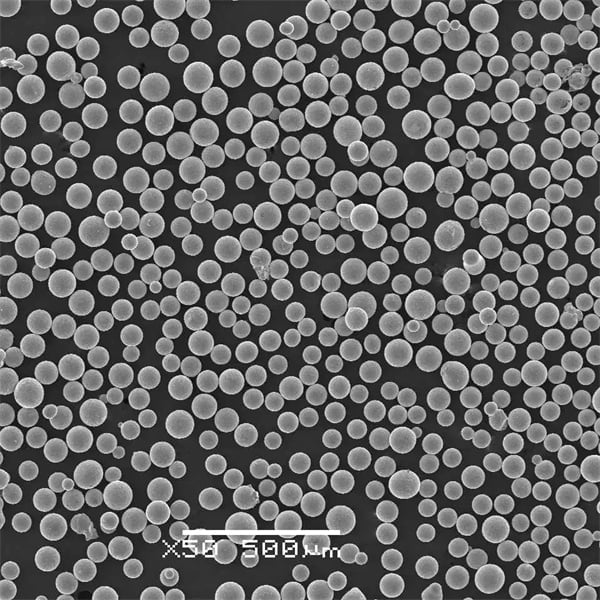
FAQ
What is titanium boride (TiB2) powder?
Titanium boride (TiB2) is a compound consisting of titanium and boron atoms. It is a ceramic material with exceptional properties, including high hardness, electrical conductivity, and chemical resistance.
What are the common applications of TiB2 powder?
TiB2 powder is used in various applications, including cutting tools, wear-resistant coatings, aerospace components, and electrical contacts. It is also used in the production of ceramic composites.
What is the color and appearance of TiB2 powder?
Titanium boride powder is typically gray or black in color and has a fine, powdery texture.
What is the hardness of TiB2 powder?
TiB2 is renowned for its exceptional hardness, ranking among the hardest known ceramic materials. Its hardness is typically in the range of 22-28 GPa on the Vickers hardness scale.
Is TiB2 electrically conductive?
Yes, TiB2 exhibits good electrical conductivity, making it suitable for applications where both high hardness and electrical conductivity are required, such as electrical contacts.
Share On
MET3DP Technology Co., LTD is a leading provider of additive manufacturing solutions headquartered in Qingdao, China. Our company specializes in 3D printing equipment and high-performance metal powders for industrial applications.
Inquiry to get best price and customized Solution for your business!
Related Articles
About Met3DP
Recent Update
Our Product
CONTACT US
Any questions? Send us message now! We’ll serve your request with a whole team after receiving your message.

Metal Powders for 3D Printing and Additive Manufacturing
COMPANY
PRODUCT
cONTACT INFO
- Qingdao City, Shandong, China
- [email protected]
- [email protected]
- +86 19116340731






